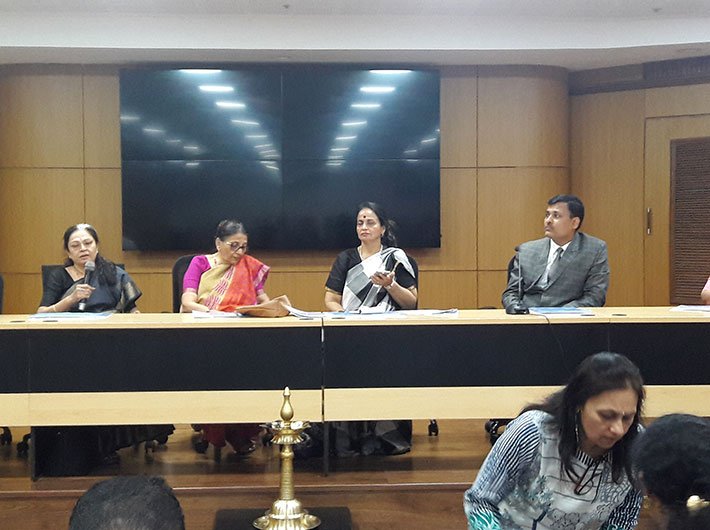All the credentials must be verified before marrying a person living abroad, said Swati Kulkarni, regional passport officer at a workshop organised on ‘Abandoned Indian women married to NRI husbands and way out’.
“Women must verify the credentials through their family, friends or local Indian associations / bodies/ NGO’s in that particular country. Also, marriage must be registered and all proofs like marriage certificate, wedding invitation, photos, copy of husbands passport, driving licence etc. must be maintained along with a list of essential contacts like embassy, NGOs and empanelled with the MEA,” she said.
The workshop was organised by the Ministry of External Affairs, Indian Council for Cultural Relations and Centre for the Study of Social Change.
She further said that apart from being aware about their rights and laws, women must also have a bank account, understand local language and should remain in touch with friends and family.
Kulkarni said that in case a woman is deserted by her husband in India she must register case under Section 498A of IPC.
Women can also approach the NRI cell of National Commission of Women. In abroad, she can register a case under Section 188 of Cr PC, approach local police, embassy and also contact employer. If a woman is deserted within 15 years of marriage in India or abroad, MEA provides financial help of US $3000 in developed countries and US$2000 in developing countries to poor women.
Jayan Sao, director, Protector of Emigrants, said that nine lakh emigrants go abroad to Gulf for jobs every year out of which almost 5 lakh emigrants require ECR. These people are educated up to 10th standard and vulnerable to exploitation. 10 lakh verified employers are registered with MEA. Only registered and licenced recruiting agents by MEA are authorised people to send abroad.
Women below 30 years are not allowed to go abroad for emigration. The employer has to deposit a bank guarantee of USD 25000 as security in Indian embassy along with employment papers which have to be attested with the embassy before she is given emigration clearance. This guarantee stands as surety in case she faces an emergency situation. He added that due to increasing exploitation of nurses, in 2015, they were included in ECR category. Government provides insurance of Rs 10 lakh to all emigrants under Pravasi Bhartiya Bima Yojana with a premium of Rs 275. All emigrants are given a one day pre-orientation training.
Sao also explained the modus operandi by which poor women in Mumbai, Telangana and Hyderabad among other places are trapped by unregistered brokers and agents in fake marriages and illegally taken to Middle East. “Due to illegal documents such women are not able to make complaints and seek help. These women are uneducated and hold ECR passports. They are taken on visitor’s visa and upon arrival at airport, brokers who are already present at airport stick back employment visa stickers on their passports. These women are then employed as housemaids for two years. This causes double jeopardy as besides denial of protection, welfare and insurance benefits by the Indian government such women are not able to come back without an exit visa given by her employer under the law. If the person is keeping her as a slave he will not give it,” Sao said.
The office rescued 168 women in 2016 and 112 women in 2107 from illegal trafficking. Though Maharashtra has a low number of emigrants, 47% recruiting agents are based in Maharashtra. Most emigration was to Saudi Arabia, followed by UAE, Oman, Qatar and Bahrain.
Sao emphasised the importance of e-Locker facility with MEA where the emigrant can access all important documents like passport copy, visa copy, signed employment contracts and genuine employers, recruiters, agents, verification and details of NRIs etc. by logging on their website and through toll free no.
In a panel discussion moderated by former Mumbai Mayor and advocate, Nirmala Samant Prabhavalkar on “Protecting the Legal Rights of abandoned Indian woman married to NRI husband and Provision for legal aid by Legal Services Authorities
Sajan Oommen, former president, Family Court Bar Council Association, said, “In practise there is no enforcement of court orders. Such issues are dealt very casually. In many cases, wife comes back to India, files petition of restitution of conjugal rights and even before the petition gets numbered, husband gets decree of divorce in foreign countries. “With too many unnecessary procedures and prolonged delay, the person remarries and has children. Despite India being a signatory to Hague Convention, there is zero enforcement. The government must help women facing difficulties in foreign countries,” he said.

